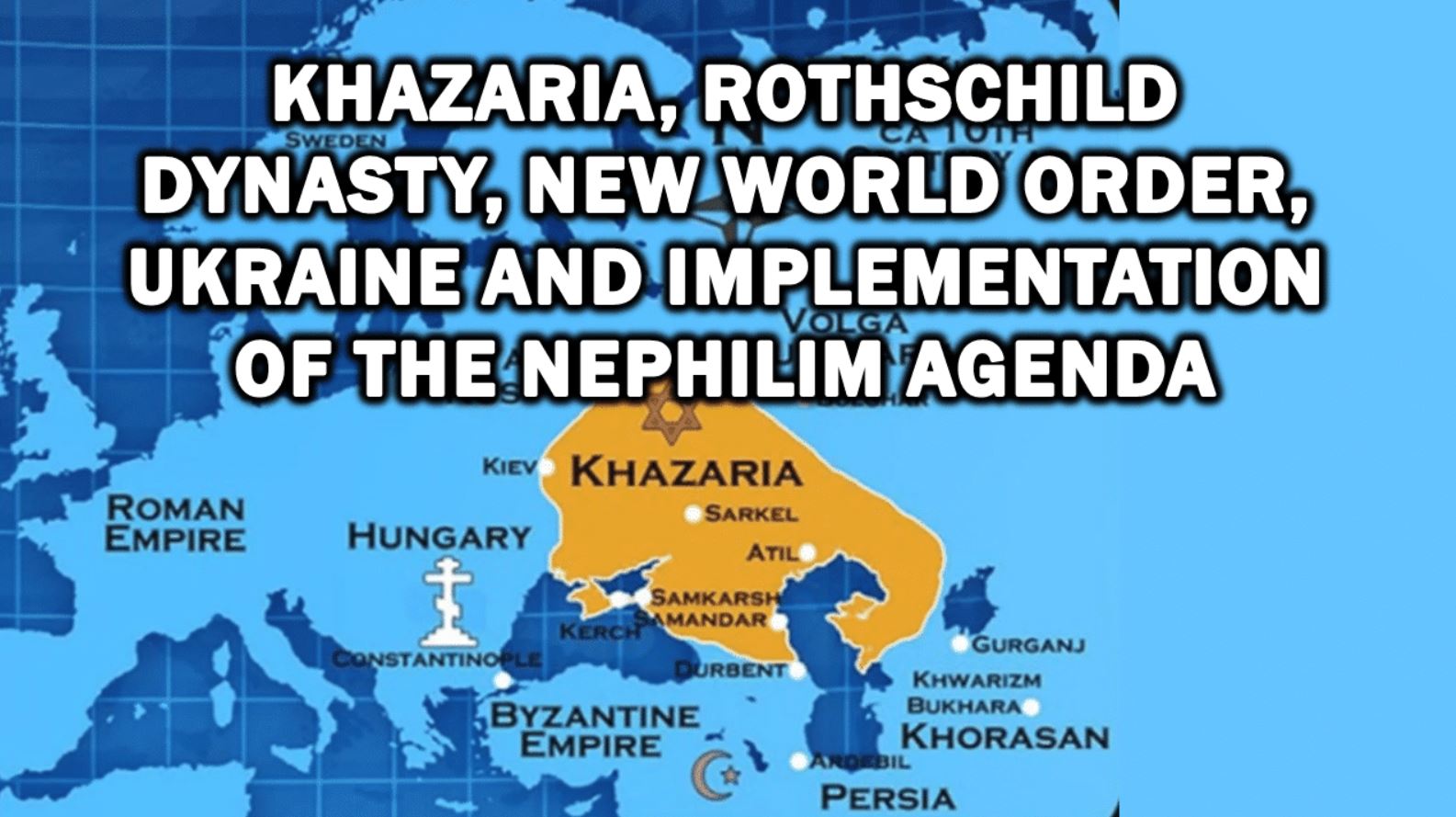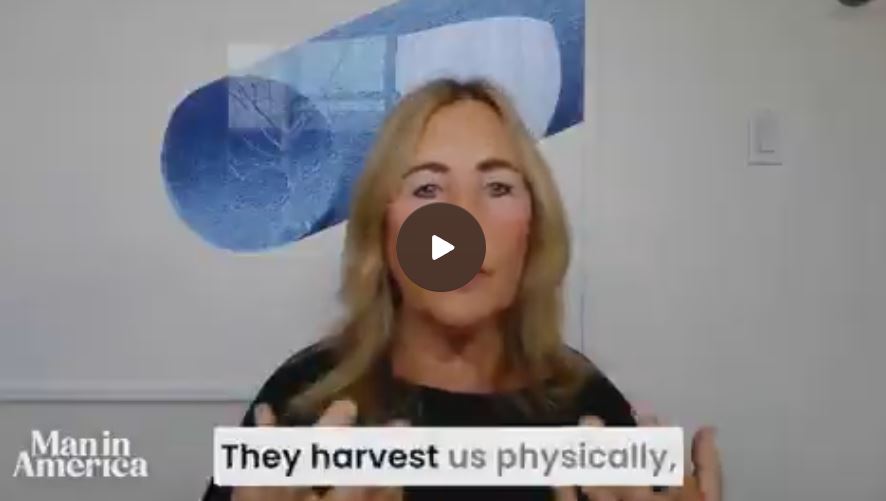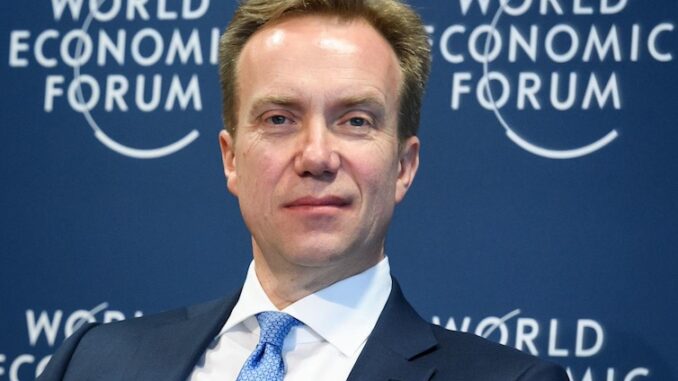People and organisations in the global network controlling corporations, covid, climate change and food supply
In 2011, a Swiss study on the global corporate control network found that 147 companies in Europe controlled 40% of the world’s wealth. A large portion of that control flows into a small, tightly-knit core of financial institutions. The most concentrated control emanated from the British financial multinational Barclays.

In 2011, a Swiss study on the global corporate control network found that 147 companies in Europe controlled 40% of the world’s wealth. A large portion of that control flows into a small, tightly-knit core of financial institutions. The most concentrated control emanated from the British financial multinational Barclays.
To put this study into a broader context, we also briefly describe the network of people and organisations responsible for the covid scam, the climate scam and the handful of corporations controlling the world’s food supply.
Table of Contents
Network of People and Organisations Responsible for the Covid Scam
In 2021, the German Club Der Klaren Worte (Club of Clear Words) published their deep dive into the network of people and organisations responsible for the covid scam.
Their 170-page document detailed more than 7,200 links between 6,500 entities and objects, including payment flows and investments. The document is mostly in English. It’s incredibly comprehensive in scope, detailing a global network that is working behind the scenes to influence global health, finance and governance.
According to the anonymous IT specialist who created the document, the core of this covid criminal network, around whom most everything revolves, is no larger than 20 or 30 people. Several of these criminals appear on page 36 as shown below (with some minor edits):
- Hermann Gröhe, German politician, Vice Chairman of Labour and Social Affairs, Economic Cooperation and Development, Workers.
- Ralph Brinkhaus, German politician, Chairman of the Digital and State Modernisation Working Group.
- Dr. Angela Merkel, Chancellor of the Federal Republic of Germany.
- Prof. Ilona Kickbusch, PhD, Graduate Institute of International and Development Studies Geneva.
- Dr. Tedros Adhanom Ghebreyesus, Director General of the World Health Organisation.
- Prof. Dr. Christian Drosten, Institute of Virology Charité, Universitätsmedizin Berlin.
- Prof. Dr. Clarissa Prazeres da Costa, Institute for Medical Microbiology, Immunology and Hygiene, Technical University of Munich.
- Joe Cerrell, Managing Director Global Politics, Bill and Melinda Gates Foundation.
- Prof. Jeremy Farrar, Director Wellcome Trust.
- Dr. Georg Kippels, German lawyer.
- Jens Spahn, German politician, Group leader.
- Dr. Gerd Müller, German politician, Federal Minister for Economic Cooperation and Development.
- Anja Karliczek, German politician.
- Dr. Georg Nüßlein, German politician.
Key organisations, whose networking connections are detailed, include: The Bill & Melinda Gates Foundation (“BMGF”); World Health Organisation; World Bank Group; GAVI, the Vaccine Alliance founded by BMGF; The Global Fund; FIND, the global alliance for diagnostics; Johns Hopkins University; Robert Koch Institute; UK’s Medicines and Healthcare Products Regulatory Agency (“MHRA”); The German Global Health Hub; Wellcome Trust; Rockefeller Foundation; World Economic Forum (“WEF”); Coalition for Epidemic Preparedness Innovations; WEF’s Forum of Young Global Leaders; Big Pharma; Charité, Universitätsmedizin Berlin; European Commission; and, Swiss Agency for Therapeutic Products.
The Bill & Melinda Gates Foundation appears to be near the top, or the centre, of the covid plandemic network. Gates is also a major funder of corporate media, and his network extends into global food and climate change policy. Additionally, the Bill & Melinda Gates Foundation, through its funding of WEF, also plays an important role in ‘The Great Reset’.
Related:
- Covid Criminal Network Leads to the Gates of Hell
- The Names of The Bilderbergers Who’ve Played a Role in The Covid Event
- COVID-19/Perpetrators/WEF, Wikispooks
- COVID-19/Perpetrators/Others, Wikispooks
- Dr. David Martin Exposes the Names and Faces of the People Who Are Killing Humanity, Red Pill Expo, 19 November 2021, read HERE and watch the video on BitChute HERE and UGETube HERE.
Network of People and Organisations Responsible for the Climate Scam
In 2012, Mark Carney was appointed the first non-British Governor of the Bank of England. He has been on WEF’s Foundation Board, head of Canada’s central bank, United Nations Special Envoy for Climate Action and Finance, chair of the Group of Thirty, chair of Bloomberg’s board of directors and chair of Brookfield Asset Management.
As the Edmonton Journal noted: “Carney has become a key player at the United Nations, the World Economic Forum, Brookfield and Bloomberg because he’s brilliant at one thing – getting governments and private businesses to fall in line with [Greta] Thunberg’s climate change agenda.”
Shortly after he became Canada’s Prime Minister, Dan Fournier noted that Carney’s involvement with the Rothschild and Rockefeller families and organisations, such as the Group of Thirty, suggests there will be a push for the globalist climate agenda that will benefit the elite at the expense of the middle class. “Carney’s ties and obsequious subservience to global banking elites, headed by the secretive Bank for International Settlements, should leave little doubt as to the dire economic plight of Canada,” Fournier said.
The Group of Thirty, or G-30 or Group of 30, is a “club” in the transnational policy community, Eleni Tsingou wrote. “Clubs are held together by elite peer recognition, common and mutually reinforcing interests and an ambition to provide global goods in line with values its members consider honourable. This notion of a ‘club’ explains how the actors who write the rules for global governance work together.”
In 2015, Mark Carney led the creation of the UK Financial Stability Board’s ‘Task Force on Climate-Related Financial Disclosure’ (“TCFD”), with billionaire Michael Bloomberg as its chairman. Here, Carney and Bloomberg were already starting a power grab by central banks. The TCFD disbanded in October 2023.
From the TCFD came the Green Finance Initiative (“GFI”), which was established in January 2016 by the City of London Corporation in partnership with the UK government.
In 2017, the Central Banks and Supervisors Network for Greening the Financial System (“NGFS”) was established as an initiative of La Banque de France at the Paris “One Planet Summit.” In September 2019, the International Monetary Fund joined as an observer. In December 2020, the US Federal Reserve joined NGFS. As of 11 March 2025, the NGFS consisted of 145 members across over 90 countries and 23 observers.
During a 2021 interview, Paul Gallagher, of Executive Intelligence Review, said: “In August of 2019, central bankers met at the Federal Reserve’s annual Jackson Hole Wyoming conference and discussed a proposal by former central bank leaders from four countries, now all executives at BlackRock. They called it ‘Regime Change.’ It was time, they said, for central banks to take control of spending powers from governments.”
Also in 2019, as a direct response to a 2018 recommendation made by GFI, the Green Finance Institute was established. Its funders include the UK government and the City of London.
In April 2021, the Glasgow Financial Alliance for Net Zero (“GFANZ”) was launched by John Kerry, US Special Presidential Envoy for Climate Change; Janet Yellen, former US Secretary of the Treasury, former chair of the Federal Reserve and emeritus member of the Group of Thirty; and, Mark Carney, as the UN Special Envoy on Climate Action and Finance. At the time, Carney, who was also the UK prime minister’s Finance Advisor for the COP26 conference, co-chaired the GFANZ with Michael Bloomberg.
GFANZ reports periodically to the G20’s Financial Stability Board. And all GFANZ member alliances must be accredited by the UN Race to Zero campaign, the United Nations Environment Programme (“UNEP”) stated. Adding that the then UK Prime Minister Boris Johnson described GFANZ as “uniting the world’s banks and financial institutions behind the global transition to net zero.”
Principals of GFANZ included BlackRock’s Larry Fink, who was and still is also on WEF’s Board of Trustees. These Principles had long been enthusiastic about the prospects of Natural Asset Corporations and other related efforts to financialise the natural world.
At the same time that GFANZ was launched, Net-Zero Banking Alliance (“NZBA”) was launched by the United Nations Environment Programme Finance Initiative (“UNEP FI”) and the Financial Services Taskforce (“FSTF”) of the Prince of Wales’ Sustainable Markets Initiative (“SMI”). At its launch, NZBA boasted a membership of 43 banks from 23 countries (with assets of US$28.5 trillion). It now boasts that its membership has tripled to 128 banks in 44 countries (with assets of US$47 trillion).
At WEF’s annual meeting in Davos in January 2020, Charles III launched his SMI. At the same time, he launched his Sustainable Markets Council, which had been established a few months earlier. A third instrument that Charles “The Great Reset King” launched at Davos 2020 was his Terra Carta, a perverse, anti-rights inversion of the legendary Magna Carta signed by King John at Runnymede in 1215. The Terra Carta asserts that the “fundamental rights and values of nature” must be placed at the core of the global economy. At the time, Charles aimed to raise and invest $10 billion (£7.3 billion) over the next decade. A few years later, in 2023, Charles III was at COP28 demanding $4.5 to $5 trillion per year to drive the transformation that was “needed” because of “climate change.”
On 3 June 2020, Charles III launched ‘The Great Reset’. On the same day, WEF released a video of a speech made by Charles III and published the article ‘Now is the time for a ‘great reset’’ to mark its launch.
Related:
- The transition from using Covid to using Climate Change as the justification for implementing the Fourth Industrial Revolution and the “digital transformation” of the economy and society is well underway” – Whitney Webb
- A Destructive Plan to Transform the Global Financial System Under the Guise Of “Climate Change”
- Eco-Fascist Mark Carney is Trying to Control the World Through Green Finance
- Meet The Great Reset King – Charles III
- Meet the world’s largest landowners topped by the British royal family
- UN-sponsored climate cartel has suspended its activities after being abandoned by BlackRock
- UN’s unprecedented effort to reduce CO2 is really about “green finance” which will be devastating to societies if we don’t stop it
- Organisations that make up the UN World Government System
- 2019 open letter condemning WEF-UN strategic partnership
A Handful of Corporations Taking Control of the World’s Food Supply
In 2022, the ETC Group published their report ‘Food Barons 2022 – Crisis Profiteering, Digitalisation and Shifting Power’. Their findings showed that “many agrifood sectors are now so ‘top heavy’ they are controlled by just four to six dominant firms, enabling these companies to wield enormous influence over markets, agricultural research and policy development, which undermines food sovereignty.”

When publishing their Food Barons 2022 report, ETC Group said:
We identify seven key aspects of the global Industrial Food Chain, which we have conceptualised in terms of power: The Food Barons aim to hold on to, naturalise and expand their power, despite their many failings – failings that became especially obvious during the global pandemic.
We also bring attention to three critical, multi-sectoral trends that increase the ability of the Food Barons – Big Ag, together with Big Tech and Big Finance – to maintain control over the Industrial Food Chain. The first of these is the digitalisation of food and agriculture across the chain. The second is the rising power of Asian (especially Chinese) Food Barons. The third is horizontal integration, including the increasing involvement of asset management companies in food and agriculture sectors – which creates the semblance of competition, but diminishes actual competition.
Food Barons 2022 – Crisis Profiteering, Digitalisation and Shifting Power, ETC Group, 7 September 2022
Read more: Report details how a handful of Corporations are taking control of the World’s Food Supply
The Network of Global Corporate Control
The 2011 study titled ‘The network of global corporate control’ by Stefania Vitali, James B. Glattfelder and Stefano Battiston investigated the structure of the control network of transnational corporations and its implications for global market competition and financial stability. The study aimed to track control relationships rather than patrimonial relationships.
Related:
- 147 Group Controls The Economy, Neutral Zeitung Schweiz, 2 November 2014 (German, online translator available)
- 17 inter-connected organisations are determining global financial policy
The concept of control in corporate finance literature refers to the ability of a shareholder to influence a firm’s strategic decisions, but for the 2011 study, control means the extent to which a shareholder can influence the economic value of a company.
The study analysed the global corporate control network using a 2007 database containing 37 million economic actors and 13 million directed and weighted ownership links. Within the database, the researchers identified a network of 43,060 transnational corporations located in 116 different countries and constructed a network of 600,508 nodes (economic entities) and 1,006,987 corporate relations.
The analysis of the database revealed that the largest connected component contains all the top transnational corporations by economic value, accounting for 94.2% of the total transnational corporations’ operating revenue. And the global network of corporate control has a bow-tie structure, with a small, densely connected core of 147 transnational corporations that hold a significant amount of control over the network. A large portion of the control flows into a small, tightly-knit core of financial institutions, which can be seen as an economic “super-entity.”
Structure of the Global Corporate Control Network
The core of the network is composed mostly of financial institutions, which can facilitate the formation of blocs and hamper market competition.

Furthermore, a small group of top holders, including transnational corporations and shareholders, accumulate a large fraction of the total network control, with the top 737 holders controlling 80% of the network’s value.
The researchers found that the network of global corporate control consists of 600,508 nodes and 1,006,987 links, with three types of economic actors: shareholders, transnational corporations and portfolio companies.
Analysis of the Network of Global Corporate Control
The network consists of 23,825 connected components, with the largest connected component (“LCC”) containing 463,006 economic actors and 889,601 relations, and including companies from 191 countries.
The LCC has a bow-tie structure, with a core of 1,318 companies in 26 countries, and the majority of nodes belonging to the LCC, indicating a high level of concentration of ownership and control.
The study found that financial institutions, such as banks and mutual funds, can exert control over companies despite not seeking active involvement in their strategies, often through informal discussions and bargaining.
The paper provides a ranking of the top 50 economic actors by global control (see below), with many of the top actors belonging to the financial sector – including companies like Barclays, Capital Group, AXA, State Street and Vanguard – and being part of an extremely entangled web of control.
Related: Building an Empire – The Vanguard Group and Corey Lynn: Who is “they”?
Note from The Exposé: Notably, BlackRock is not listed in the study’s top 50 economic actors. The study analysed data in a 2007 database, before the global financial crisis. During the 2008 financial crash, BlackRock and its risk capabilities was called upon by governments around the world “to help them navigate the financial crisis.”
According to The Naeth, “During the 2008 financial crash, BlackRock used their powerful connections to become the go-to people called upon by various Washington and Wall Street figures to help them recover from the mess they created. They offered low-risk exchange trade funds to organisations hit hardest by the crash, and by the recession a year later, they became the number one asset manager in the world. They purchased R3 Capital Management and part of Barclays, adding $15 billion to their assets.
Related: Mark-to-market: A BIS scheme that helped to set up the 2008 Global Financial Crisis

Source: https://expose-news.com/2025/06/23/the-global-control-network/
Bitchute: https://www.bi,tchut,e.com/channel/YBM3rvf5ydDM/
Telegram: https://t.me/Hopegirl587
EMF Protection Products: www.ftwproject.com
QEG Clean Energy Academy: www.cleanenergyacademy.com
Forbidden Tech Book: www.forbiddentech.website







